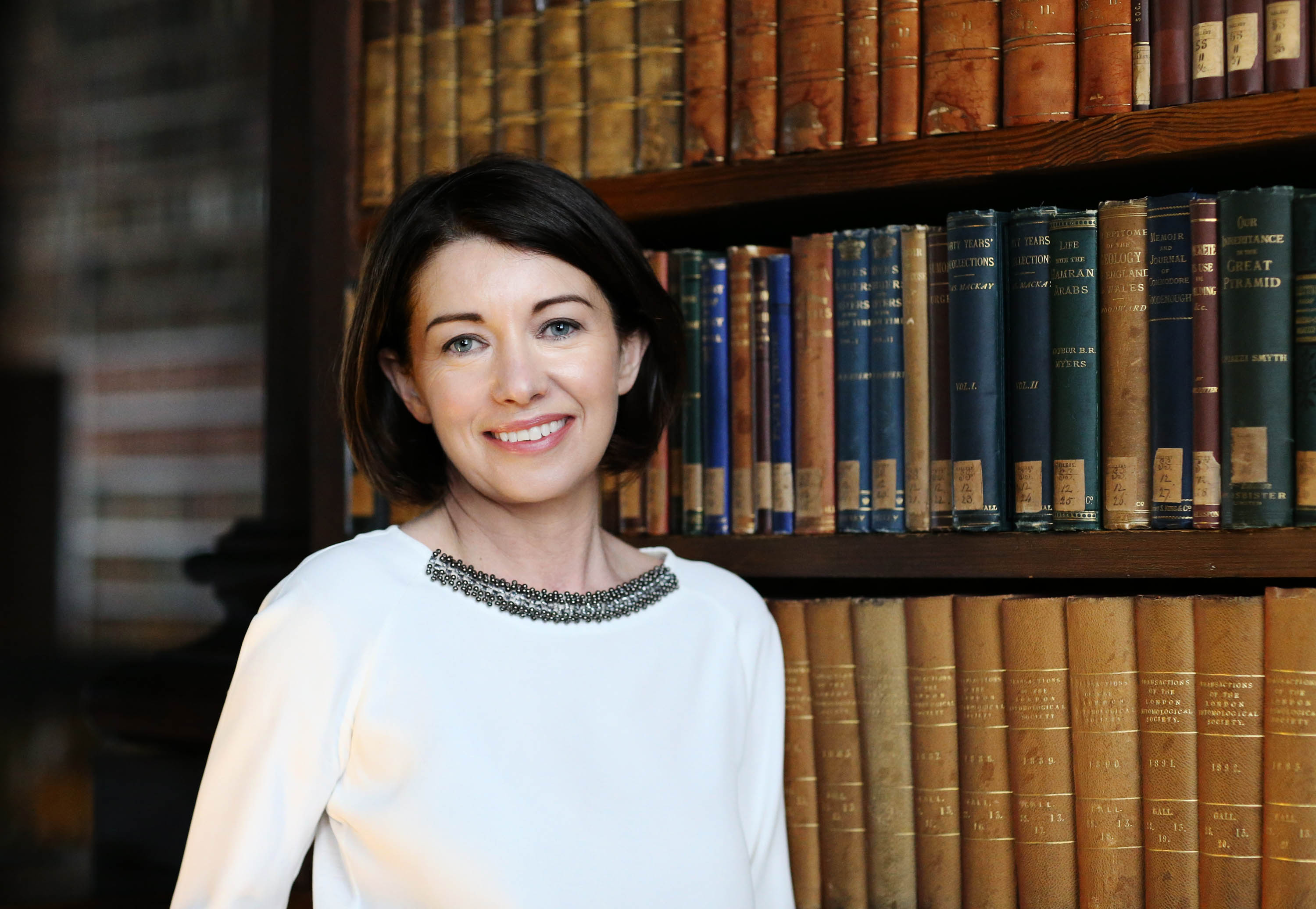Linda Hogan will govern Trinity with a view to placing Trinity back “among the world’s top 50 institutions” if elected Provost, according to her manifesto.
Tackling cumbersome bureaucracy, developing robust income streams, reducing staff-student ratios and enabling excellence in research are some of the key points of Hogan’s 16-page manifesto.
In 2009, Trinity was ranked 43rd in the QS World University Rankings. It has since fallen as low as 108th, and currently stands at 101st.
Hogan’s career as an ethicist is at the forefront of her manifesto, a copy of which was obtained by this newspaper. She draws on her own experience to preside over Trinity with “ethical leadership”, creating “an institution governed by an enlightened, accountable and trusted leadership that acts through an ethical lens and promotes true equality and diversity”.
She draws her budgetary experience as Vice Provost to state that as Provost she will aim to “prioritize investment in Schools to hire new staff and take up new development opportunities”.
Citing the impact of her planned investment, Hogan’s manifesto notes that it “will produce an overall staff: student ratio of 1:16 by 2026”. Focusing on Trinity’s long-criticised student-staff ratio goes part of the way in explaining Hogan’s ambitious idea of ensuring that the College will “reclaim our place among the world’s top 50 institutions”.
Referencing the economic downturn brought on by the coronavirus pandemic, Hogan uses her budgetary knowledge from her time as vice provost after the 2008 financial crash to provide her vision for bringing Trinity through another economic downturn. Taking centre stage among her financial plan is lobbying the government for increased investment in higher education.
Yet receiving government funding isn’t Hogan’s sole focus. In tandem with this, Hogan details how she will seek to turn philanthropic donations away from investing in capital projects to instead investing in people. Once again harnessing her ethics background, Hogan envisions how such donations will enable the development of “thought leaders who will guide research and deliver education”.
Painting a picture of her future leadership, Hogan describes shifting the focus of the College. “In the past it may have appeared that such efforts are primarily about increasing non-EU student numbers. In the future this will be about enriching the educational experience for all, new approaches to educational delivery, joint research projects and addressing global challenges.”
It is clear Hogan believes research has not been properly managed in the past, describing support provided to the area as “ad hoc, inconsistent, and fragmented”. Her criticism of Trinity’s previous handling of this area is countered with a detailed vision aimed at implementing research excellence which plans to tackle some of the problems currently experienced by staff.
Among this includes the creation of an Annual Strategic Research Fund and the establishment of “a coherent system of supports” for postgraduate research.
Hogan’s ethics background is reiterated again when she speaks of the changing demographics of Trinity’s student body. “I am deeply committed to educational opportunity for all and value the benefits of an increasingly diverse student body (through TAP, HEAR & DARE, and other initiatives). My commitment is underpinned by my long standing personal and professional engagement on issues of human rights, justice and equality.”
While the current Provost Patrick Prendgast brought in the idea of Trinity’s alumni network Hogan aims to go one step further by creating “the Trinity Intergenerational Global Network,” whose goals are to “give students the chance to belong to a structured intergenerational network, connecting them to alumni around the world”.
With Trinity’s first female provost entering office later this year, the topic of gender equality and inclusion will no doubt be at the forefront of the election campaign. To that end, Hogan lays out her plan indicating that if elected she will seek to develop a “5-year Equality, Diversity and Inclusion Strategy and Action Plan”.
Indeed the issue of equity seems to be on the forefront of Hogan’s mind as she declares that if elected Provost her “first task will be to institute a fundamental reform of promotion and career progression”. The professional advancement of staff will no doubt be on the electorate’s minds and promising an immediate resolution to this problem looks set to serve Hogan well.
While faced with an all-female field, Hogan displays her vision for tackling institutional problems of gender representation in academia, as she seeks to put in put place new approaches to recruitment and address the dropout of women at doctoral and postdoctoral levels
through target interventions.
With a dedicated climate-change debate on the campaign schedule, environmental issues will also be a key issue for the election. Hogan says that if she were to be elected, she would aim to move Trinity towards “being a zero carbon organisation and will become carbon-neutral in the lifetime of my Provostship.”
Laying out the semantics of this in her manifesto she seeks to commission “a Carbon Neutral Action Plan” in tandem with addressing the issue of international flights – she aims to reduce flights by 10 per cent, and where staff continue to fly, she pledges to carbon offset these trips.
While the implementation of this strategy is likely to be popular among the student body, questions may be raised among staff as to the costliness associated with pursuing a carbon-neutral approach. Acknowledging this, Hogan lays out the budgetary implications: “Trinity will incur a 10% increase in non-payroll costs to become carbon neutral, which is 3% of revenue.”
In a survey carried out by this newspaper, 42 per cent of professors said that administrative work and bureaucratic difficulties were their top priorities heading into the Provost elections. Tackling this challenge will be a tall order and Hogan names it as an area that requires “urgent attention and a new approach” her plan to tackle this involves the implementation of a “programme of renewal” which among its aims is to bring in a “process of radical simplification, and redundant bureaucracy will be stripped from all our processes”.







